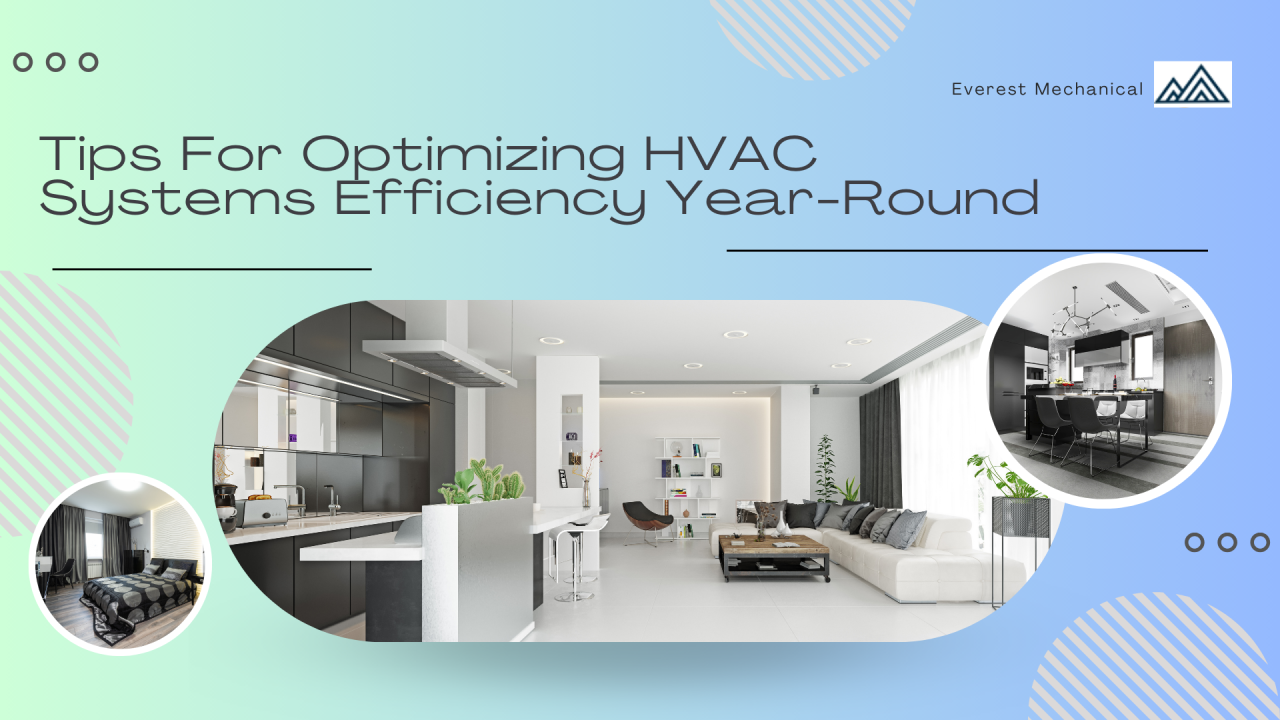Optimize Comfort: HVAC Efficiency Tips
Enhancing the efficiency of your Heating, Ventilation, and Air Conditioning (HVAC) system not only contributes to cost savings but also promotes environmental sustainability. Explore practical HVAC efficiency tips to ensure optimal performance and comfort in your home.
Understanding the Importance of HVAC Efficiency
Efficient HVAC systems play a crucial role in maintaining a comfortable indoor environment while minimizing energy consumption. This not only reduces utility bills but also lessens the environmental impact associated with energy usage. Embracing HVAC efficiency is a win-win, creating a more sustainable and cost-effective home.
Regular HVAC Maintenance for Peak Performance
Routine maintenance is key to ensuring your HVAC system operates at its best. Schedule professional inspections and cleanings to address issues like clogged filters, dirty coils, and worn-out components. Regular maintenance enhances system efficiency, prolongs equipment life, and reduces the likelihood of unexpected breakdowns.
Optimal Temperature Settings for Energy Savings
Adjusting your thermostat to optimal temperature settings is a simple yet effective way to enhance HVAC efficiency. In the winter, set your thermostat to a lower temperature when away or asleep, and in the summer, set it higher. Investing in a programmable thermostat allows for automated temperature adjustments, maximizing energy savings without compromising comfort.
Sealing Air Leaks and Insulating
Well-insulated and properly sealed homes are more energy-efficient. Identify and seal air leaks around windows, doors, and other openings to prevent conditioned air from escaping and outside air from infiltrating. Additionally, ensure adequate insulation in attics, walls, and floors to maintain a consistent indoor temperature.
HVAC Efficiency Tips (Click here for additional resources)
Upgrading to Energy-Efficient HVAC Equipment
Consider upgrading to energy-efficient HVAC equipment for substantial long-term benefits. High-efficiency furnaces, air conditioners, and heat pumps are designed to use less energy while delivering optimal performance. Energy Star-certified equipment meets stringent efficiency standards and may qualify for rebates or incentives.
Regularly Changing Air Filters
Clogged and dirty air filters restrict airflow, forcing your HVAC system to work harder. Change air filters regularly to maintain proper airflow, improve indoor air quality, and enhance system efficiency. Check filters monthly, especially during peak usage seasons, and replace them as needed.
Utilizing Zoning Systems for Targeted Comfort
Zoning systems allow you to customize temperature settings for different areas of your home. This targeted approach ensures that conditioned air is directed where it’s needed most, reducing energy waste. Zoning systems are particularly effective in homes with varying temperature preferences or multiple floors.
Installing Smart Thermostats for Precision Control
Smart thermostats offer advanced features for precise temperature control and energy management. These devices learn your preferences, adapt to your schedule, and can be controlled remotely through smartphone apps. Smart thermostats provide real-time energy usage data and contribute to a more efficient HVAC system.
Promoting Natural Ventilation and Sunlight
Leverage natural ventilation and sunlight to reduce reliance on your HVAC system. Open windows strategically to allow fresh air circulation, and use curtains or blinds to control sunlight exposure. This approach not only enhances comfort but also minimizes the need for constant heating or cooling.
Encouraging Energy-Efficient Habits
Simple lifestyle changes contribute to overall HVAC efficiency. Encourage energy-efficient habits such as turning off lights and electronics when not in use, using energy-efficient appliances, and practicing mindful water usage. These habits complement HVAC efforts, creating a holistic approach to a sustainable home.
Implementing these HVAC efficiency tips ensures a more comfortable living space while promoting responsible energy consumption. By optimizing the performance of your HVAC system, you not only reduce your environmental footprint but also enjoy long-term cost savings and a home that prioritizes both comfort and sustainability.


